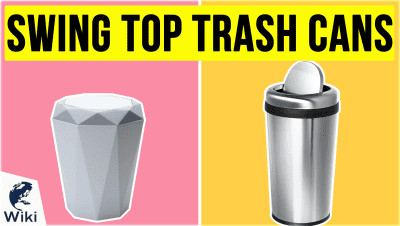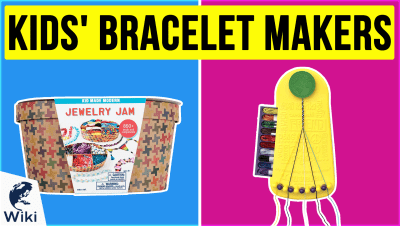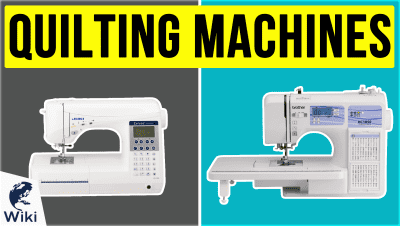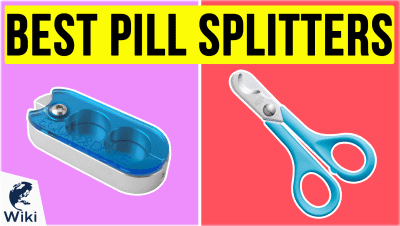5 Organizations Leading The Charge For Sustainable Seafood
In addition to pollution, our oceans and the marine habitats they contain are increasingly imperiled by the prevalence of mass-scale industrial fishing. Dedicated to combating harmful practices that deplete the sea and leave people hungry, the organizations listed here work to foster more sustainable approaches to seafood production and supply. This video was made with Ezvid Wikimaker.
5 Groups Promoting Seafood Sustainability
| Organization | Mission |
|---|---|
| Aquaculture Stewardship Council | Transform the world's seafood markets and promote the best environmental and social aquaculture performance |
| FishChoice | Create solutions that accelerate sustainability in the global seafood industry |
| FishWise | Promote the health and recovery of ocean ecosystems by providing innovative market-based tools to the seafood industry, and by supporting sustainability through environmentally and socially responsible business practices |
| Fish Revolution | Create socio-environmental equity in ocean conservation movements |
| Eating with the Ecosystem | Promote a place-based approach to sustaining New England's wild seafood through flourishing food webs, healthy habitats, and short, adaptive seafood supply chains |
What is Sustainable Seafood?
Groups Dedicated to Protecting Oceans
| Organization | Mission |
|---|---|
| World Oceans Day Canada | Educate and encourage everyone to protect water, waterways, and habitats |
| Ocean Defenders Alliance | Clean and protect marine ecosystems through documentation, education, and meaningful action |
| The Bay Foundation | Restore and enhance Santa Monica Bay through actions and partnerships that improve water quality, conserve and rehabilitate natural resources, and protect the Bay’s benefits and values |
| Anderson Cabot Center for Ocean Life | Apply cutting-edge marine research, data-driven conservation solutions, and public engagement to ensure a future for the oceans in which resources are used sustainably, critical species and habitats are protected, and ecosystems are managed wisely |
| Oceana Canada | Restore Canadian oceans to be as rich, healthy, and abundant as they once were |
| Deep Sea Conservation Coalition | Address the issue of bottom trawling on the high seas, in the absence of an effective regime for the management of deep-sea fisheries on the high seas and in response to international concerns over the harmful impacts of deep-sea bottom trawling |
Fascinating Facts About the Ocean
- Oceans cover nearly three quarters of the earth's surface
- Cigarette butts are the most common form of ocean litter
- Hurricanes are formed by a combination of thunderstorms and warm ocean waters
- Sand is composed of decomposed rocks, volcanic material, organic by-products, and fish feces, among other things
- Some waves are caused by friction between wind and the water's surface and others are caused by the pull of the sun and moon
- The ocean produces over half of the world's oxygen and stores 50 times more carbon dioxide than the atmosphere
- Seventy-six percent of all U.S. trade involves some form of marine transportation
- Many medicinal products come from the ocean, including ingredients that help fight cancer, athritis, Alzheimer's disease, and heart disease
- The ocean transports heat from the equator to the poles, regulating climate and weather patterns
The Mission of the Aquaculture Stewardship Council
In Depth
Humanity's increasing demand for seafood has led to unsustainable environmental pressures such as the over fishing of our oceans. Fortunately, there are many organizations leading the charge to create a sustainable seafood culture so that humanity can continue to harvest the seas. Whether it's for a data driven approach, or one focused on local ecology, consider the organizations listed here in no particular order.
First up at #1 we have The Aquaculture Stewardship Council, or ASC, an independent, international non-profit organization dedicated to providing the standards necessary to identify and grant certification to providers of responsible aquaculture. The ASC works with producers, seafood processors, retail and food service companies, conservation groups, and consumers to transform the industry.
The ASC standards are a result of the Aquaculture Dialogues, initiated by the World Wildlife Fund for Nature, to address the most pressing environmental and social impacts of aquaculture. The ASC standards set strict requirements for responsible farming, which encourages seafood producers to increase sustainability, and covers 17 species groups.
The ASC standards are a result of the Aquaculture Dialogues, initiated by the World Wildlife Fund for Nature, to address the most pressing environmental and social impacts of aquaculture.
Next up at #2 is FishChoice, Inc., or FCI, a registered environmental nonprofit, founded in 2008, that envisions a thriving and sustainable seafood industry for the entire planet. FishChoice is dedicated to powering progress on seafood sustainability by giving thousands of businesses the information they need to turn environmental commitments into action.
FishChoice has created an online platform that allows seafood businesses to learn about the basics of sustainability, track the status of goods to ensure environmental friendliness, share that information with customers, and find seafood that meets the individual business's requirements. FishChoice allows producers and consumers to become more conscious and actively sustainable.
Coming in at #3, we have FishWise, a company that works closely with the fishing industry to advance leadership in sustainability. Additionally, the company seeks to create new strategies for traceability and advocating for human rights in seafood supply chains. FishWise's in-house data team enables seafood producers to work towards a more sustainable future.
Additionally, the company seeks to create new strategies for traceability and advocating for human rights in seafood supply chains.
FishWise seeks to improve the sustainability and traceability of seafood supply chains. Traceable seafood can be tracked back through the supply chain to its source, be that a fishery or an aquaculture facility, including all changes made to any item. Traceability is a critical tool for maintaining food safety, improving logistical efficiency, and verifying sustainability claims.
Arriving at #4 is Fish Revolution, an organization that provides sustainable seafood education, sourcing assistance, and research consulting services to decrease the harmful impacts of our harvesting choices on the world's oceans. Fish Revolution works with businesses to define avenues for improving seafood purchasing practices that reflect both sound business decisions and solutions to ocean issues.
Since 2008, Fish Revolution has partnered with industry members in every area of the seafood supply chain to shift millions of dollars of annual revenue away from harmful fishing and aquaculture practices to environmentally sound ones. Fish Revolution provides third-party consulting to industry leading businesses in order to incorporate seafood sustainability into the status quo.
Since 2008, Fish Revolution has partnered with industry members in every area of the seafood supply chain to shift millions of dollars of annual revenue away from harmful fishing and aquaculture practices to environmentally sound ones.
Finally at #5, we have Eating with the Ecosystem, an organization with a mission to promote a place-based approach to sustaining New England's wild seafood by fusing together the knowledge of marine scientists and commercial fishermen, the creativity of the region's chefs, the know-how of businesses, and the enthusiasm of local seafood lovers.
Eating with the Ecosystem pursues programming that includes a combination of educational events, supply chain facilitation, and public awareness-raising through print, web, and signage. The organization's purpose is tethered to five anchors that together embody a place-based approach to sustaining wild seafood for New England and local consumers.
















